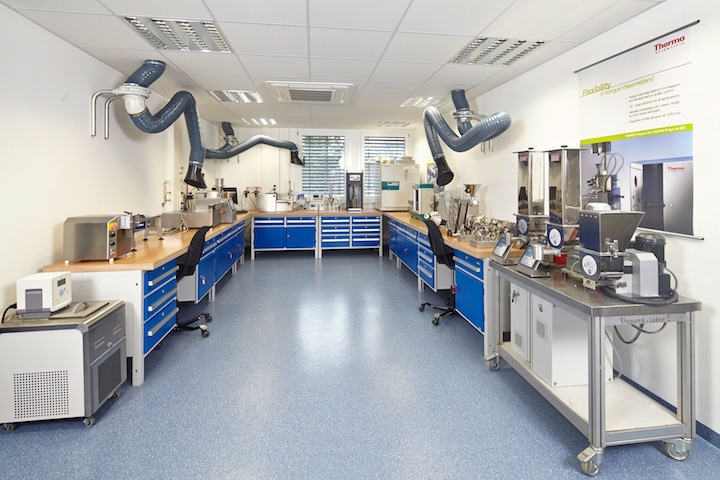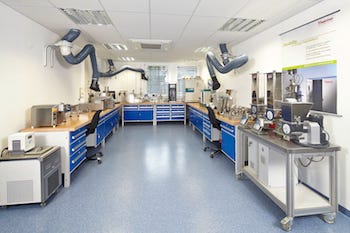Thermo Fisher Scientific, a global company headquartered in Waltham, MA, serving science, has opened a new demonstration center for material characterization applications in Karlsruhe, Germany, the company announced today. The center will provide material characterization services for research and development, quality control and academia as well as hands-on training for its customers.
September 18, 2015

Thermo Fisher Scientific, a global company headquartered in Waltham, MA, serving science, has opened a new demonstration center for material characterization applications in Karlsruhe, Germany, the company announced today. The center will provide material characterization services for research and development, quality control and academia as well as hands-on training for its customers.
 The new 6,450-square-foot demonstration laboratory will give customers hands-on access to Thermo Fisher's state-of-the-art rheometers and viscometers, including the new Thermo Scientific Haake Mars 40 and 60 modular rheometer platforms. In addition, the company is making available extrusion and compounding technologies for process applications and the pharmaceutical industry, including the Thermo Scientific Pharma 11 twin-screw compounder, for test trials, customer samples and factory-based functional tests
The new 6,450-square-foot demonstration laboratory will give customers hands-on access to Thermo Fisher's state-of-the-art rheometers and viscometers, including the new Thermo Scientific Haake Mars 40 and 60 modular rheometer platforms. In addition, the company is making available extrusion and compounding technologies for process applications and the pharmaceutical industry, including the Thermo Scientific Pharma 11 twin-screw compounder, for test trials, customer samples and factory-based functional tests
"Our new center will provide a collaboration site where we can help our customers develop accurate and reproducible data from meaningful rheological, compounding and extrusion experiments," said Julia Schaedler, Managing Director of Thermo Fisher's material characterization business and Site Leader in Karlsruhe. "We will offer a range of training seminars and programs to help our customers develop and optimize their innovative applications."
Suited for a range of industries, Thermo Scientific material characterization solutions analyze and measure viscosity, elasticity, processability and temperature-related mechanical changes of plastics, food, cosmetics, pharmaceuticals and coatings, chemical or petrochemical products, plus a variety of samples from liquids to solids.
About the Author(s)
You May Also Like


